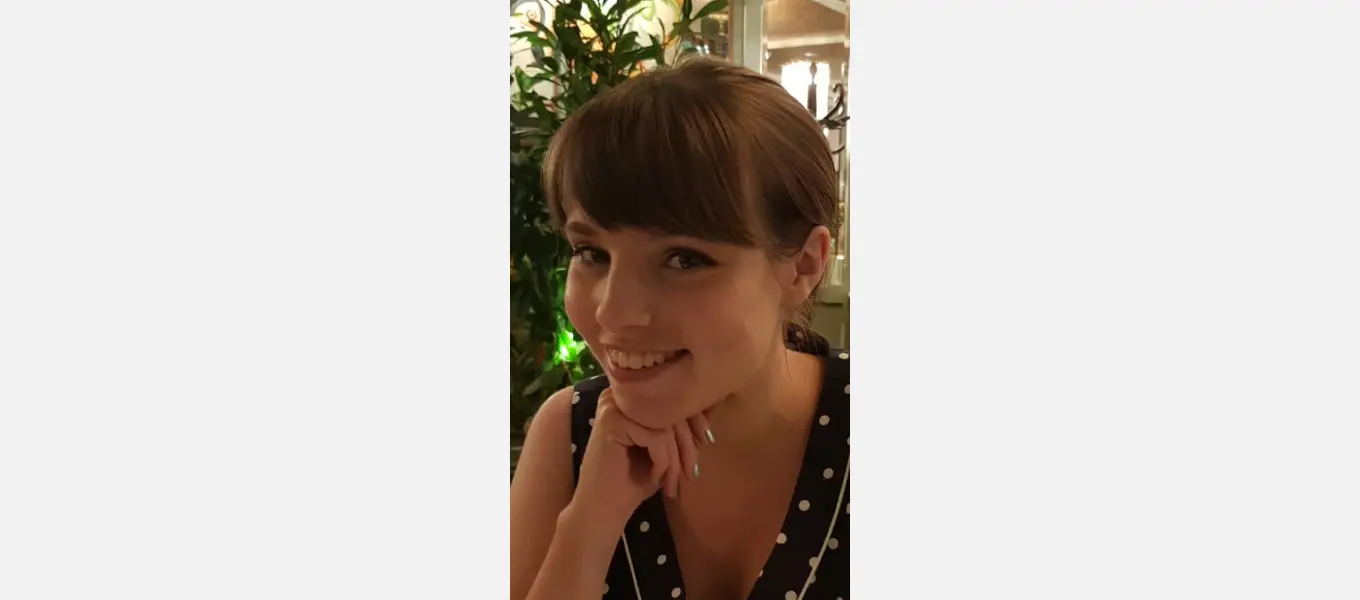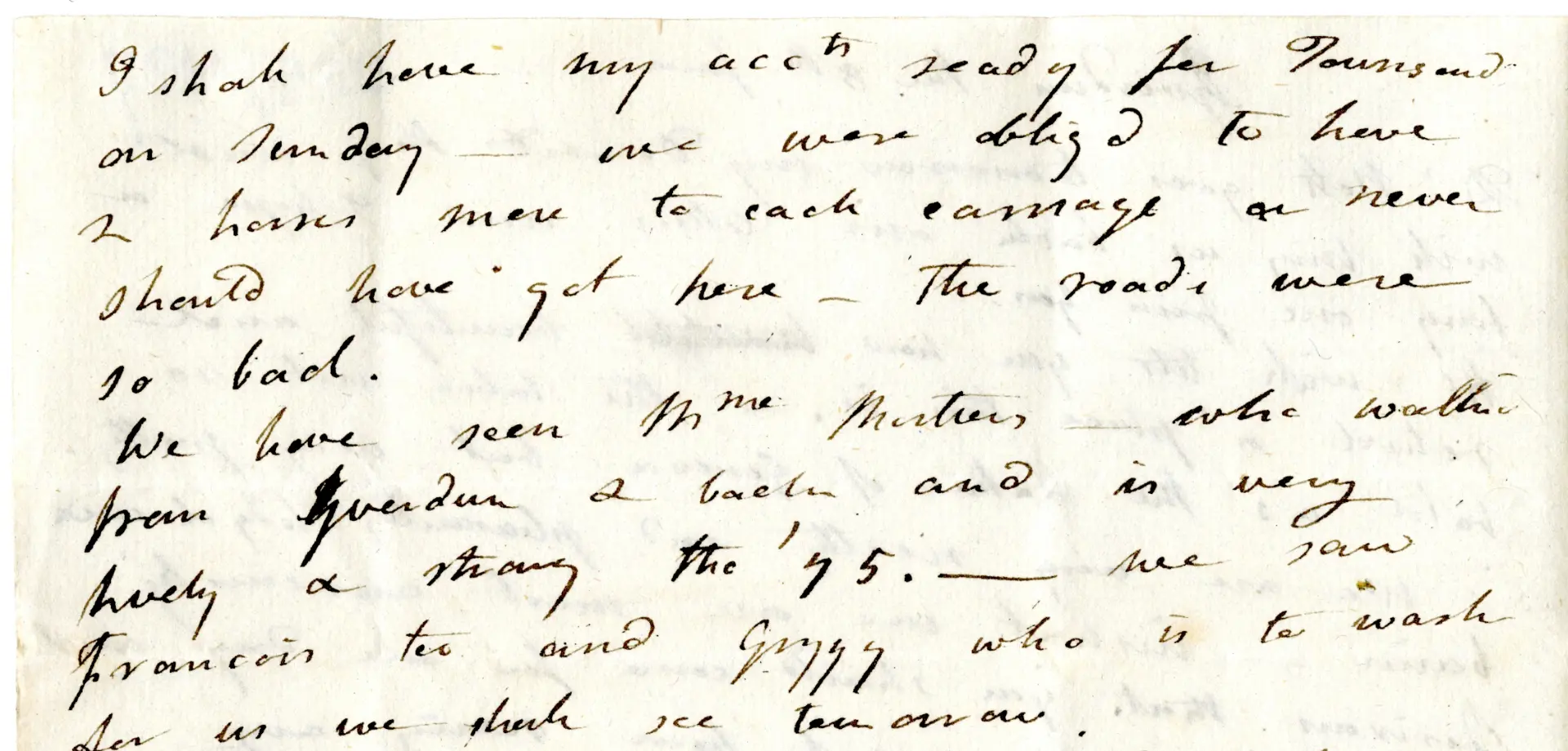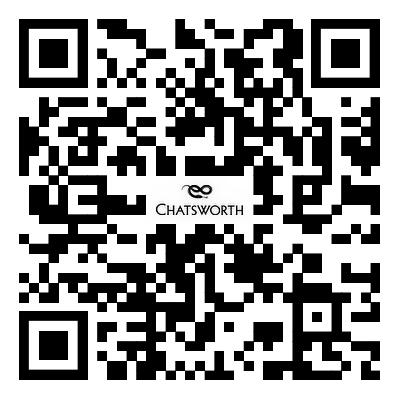During August 2020 the Devonshire Collection Archives hosted Isabel Budleigh, a doctoral student from the University of Oxford, as a remote intern, supported by the University of Oxford Humanities Division and Careers Service. She was tasked with creating a new, up-to-date reading list for the archives and compiling a report evaluating the archives’ untapped potential for current researchers. Here she writes about her experiences with Chatsworth this summer.
Like many people this year, my summer looked nothing like I had planned. As a PhD researcher I normally work through the summer months, but with many of the archives and country houses I work with being closed, much of my research had to be put on hold. I was therefore even more delighted to be chosen for an internship with the archives team at Chatsworth and have the chance to produce resources that would support their work. Due to Covid-19 this was a remote internship, which sadly meant I wasn’t based in the archives themselves, but through the wonders of Zoom calls, online databases and numerous PDF file transfers it was possible to complete everything virtually, with the able support of Chatsworth’s archivist Fran Baker.

My internship was split into two main tasks. First, I was asked to compile a comprehensive, up-to-date bibliography of all things related to Chatsworth. This was intended both to inform the printed reference collection at Chatsworth and to aid external researchers going forwards. A reading list did already exist, but as this was a little out-of-date and didn’t cover everything the team thought should be on there, it was my task to augment it and bring it up to the desired standard.
The existing list had focused almost entirely on Chatsworth and the immediate Cavendish family, but if you’ve been lucky enough to have any experience with the archives here, you’ll know that their span is far greater than this. After working systematically through publications on Chatsworth itself and the different generations of the Cavendish family, I expanded the scope to related families (the Boyles, Russells, Mitfords, Saviles and Finches) and the numerous other Devonshire estates, as well as key individuals like Thomas Hobbes, Henry Cavendish and Joseph and Sarah Paxton, all of whom are represented in the archives. There are now also sections dedicated to servants and key architects and designers connected to the various houses. More general material which references the families or estates also has its own section, grouped by the century on which it is focused.
The original reading list had comprised almost solely of books, but the new one includes theses, journal articles, edited essay collections, monographs and more, covering a much larger array of topics to help give researchers a good idea of what has been published on each one. There was far more relevant material out there than either Fran or I had ever thought possible at the start, but I hope that the finished document, accessed via the link below, will be of genuine use to researchers, especially in uncovering people, topics and histories that they may never have connected to Chatsworth before.
There is a huge amount of exciting activity in country house research at the moment, so for my second task the team at Chatsworth wanted me to identify how they can best support current research to make the most of the archives here. To compile this report, I first had to identify the current key trends within wider country house research. I had the benefit of a head start on this from my own PhD work, which focuses on the evolution of historic house interpretation for the visiting public from the 1930s to the present day. Through this I have seen a significant shift in the main areas of interest surrounding country houses in the past three to five years, and arguably even more so this year in the wake of Black Lives Matter and its impact on both the heritage sector and academia.
Within this context, the team were particularly keen for me to evaluate how colonial connections within Chatsworth’s archival material can and should be approached. While the colonial links at Chatsworth may not be as obvious as at other places, the team is keen that these aspects of its history are acknowledged and told, and I hope my report will be a helpful resource in pursuing this.
After outlining developments in this area, as well as other active areas of interest (including women’s narratives, LGBTQ+ narratives, non-aristocratic people in the country house, the Jewish country house, and networks of supply and consumption), I moved on to analysing the Devonshire Collection Archives themselves. This was no small undertaking as the archival holdings are impressively vast, but with Fran’s help and the use of many PDF catalogues I was able to gain a good idea of their contents. From prior experience I knew the archives to be of a very high quality, but nevertheless I was still struck by the sheer breadth of material they hold.
The final part of my report outlined the key areas for the team to focus on to further unlock the archives’ research potential in light of these current research trends. This included identifying key collections on which to focus cataloguing efforts and practical ways to help researchers engage with the archives, alongside methods to spread awareness of exactly what the archives contain. The report also includes an appendix listing recent conferences, publications, partnerships, projects and PhDs centred on country houses, which I hope will prove to be a useful source of information too.
Thank you so much to the team at Chatsworth, especially to Fran who has been a wonderful guide and support throughout. It’s been a joy to be able to contribute to the work of the archives and it’s an experience I know I’ll treasure for a long time. After being granted this insider’s look, Chatsworth is firmly on my list of PhD case studies, so I hope I’ll be back in the archives again (hopefully in person!) before too long.
Isabel Budleigh, University of Oxford






